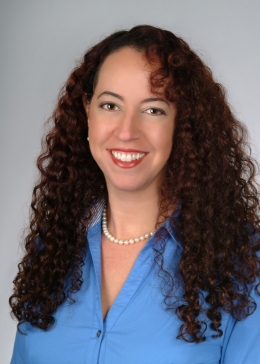
At this point in time, in our American history, we are on the heels of the 50th anniversary of the John F. Kennedy assassination. In 1963, we all were struck by a plethora of emotions – shock, disbelief, anger, incredible sadness and overwhelming collective grief. Why? In my opinion, this President represented all that was new and spurred our hopes for a bright future. JFK captivated the nation and the world! But… in truth, we didn’t know him personally. However, he captivated us as if he was a family member. Just imagine… if a “political stranger’s” death can affect us in such a way, what must it be like when murder happens to our immediate family and friends? That is the question… and the real life situation that tries many people’s souls. How do we understand this type of loss as compared to other types?
“Shattered Lives” hosts invited as their guest, psychologist Alyssa Rheingold, Ph.D. of the National Crime Victims Center located at the Medical University of South Carolina to discuss such issues and try to answer the hard questions based upon her research and expertise.
LISTEN TO THIS PODCAST
- Intimate Partner Violence PSA by Amy Robinson
- Introduction to our guest
- An overview of what homicide looks like…
- LJ asks why there is not more research on homicide.
- Alyssa explains what the Medical University of South Carolina offers
- If you can’t come in…. they have clinicians that go to the home and do community visits
- “These victims need more than a support group”- a hole in the needs of an underserved population

- Trainings and their program as a model
- The level of preconceived planning – the crux of the terms murder versus homicide
- Signs and symptoms common in homicide
- Some variables- Stigma, law enforcement, media involvement,
- Intensity, recovery time, greater risk of having other mental health problems
- Delilah marvels about inner strength, the human spirit, rebounding and “coming to a fork in the road” What is it about the makeup of people?
- Alyssa responds about resiliency – the factors involved
- Ladyjustice personally “figuring out a way to cope successfully with homicide”
- Ladyjustice asks about other problem areas that people may not always recognize
- Example – When the breadwinner is murdered
- When you begin to heal… and then the trial…
- The dilemma of religion when a homicide occurs
- Therapists working with homicide victims – Are they qualified?
- Prolonged grief- What is it and what is done to get “unstuck?”
- Discussion of positively reinforcing behaviors
- LJ asks about progress of the trial and amount of grief– Are they emotionally linked.
- What do you do with victims whose cases have gone cold? “Life on hold”
- Delilah asks about families of missing persons and no “event” to overcome.
- Discussion of those who need and respond best to counselling versus others
- The problems with “friends”
- Working with families and different styles of grieving
- The holidays- The stress and the grief
- Alyssa’s advice: “No shoulds” “Anything goes” as long as it isn’t harmful
- Being alone versus support on anniversary days and holidays…
- Plan ahead for integrating your loved one into the holiday in some way
- Entering the homicide support group setting- What it’s like? The bond of loss…
- Alyssa’s advice – You are not alone… there is support and help out there if you reach out.
- Discussion of Parents of Murdered Children (POMC ) and other victims beyond parents
- Contact Information: Dr. Alyssa A. Rheingold, Ph.D. c/o National Crime Victims Center, Department of Psychiatry and Behavioral Sciences, Medical University of South Carolina E-mail: rheingaa@musc.edu
Questions for Listeners
- How many people are killed via homicide each year?
- How did their level of care at MUSC start?
- What does their model of service consist of?
- What’s the difference between the terms homicide versus murder?
- How are my symptoms of grief with the passing of “Aunt Betty” different from grief in a homicide?
- Are some people more prepared to withstand homicide- Why, or why-not?
- Examples of cases- Managing beyond the system- What other complications can occur?
- Do you have to “forgive” in order to move on?
- What does an assessment for counseling entail?
- How can victims work on their acceptance of the homicide?
- How do you find enjoyment in things that remind you of your loved one?
- Is there a medication for grief?
- What are “okay” behaviors in grieving versus the need- timetable for counselling?
- How can we get through the holidays in a better way after such a loss?
- How can you feel more comfortable in a support group?
- Where can you find a support group if you are not in a big city?
The Multi-Faceted Aspects of Murder- A Tutorial of “Murder 101”
The comments expressed on this website or on the broadcasts of Shattered Lives do not necessarily reflect the opinions or beliefs of the hosts, producers, or other guests.
Related articles
- Justice, Reform and Humanity Thy Name is Jennifer Bishop Jenkins… (donnagore.com)
- University holds vigil for Maine homicide victim (bostonherald.com)
- Yale Study Self Defense Tip: Avoid Criminals Doing Criminal Activities (thetruthaboutguns.com)
- Victim Impact Statement Assistance with Donna R. Gore (imaginepublicity.com)
- Study: Odds Of Being Murdered Closely Tied To Social Networks (npr.org)
- Shattered Lives: Alyssa Rheingold and Survivors of Crime (imaginepublicity.com)
- LadyJustice Speaks to Connecticut Law Class (imaginepublicity.com)

[…] The Multi-Faceted Aspects of Murder- A Tutorial of “Murder 101″ (donnagore.com) […]
[…] The Multi-Faceted Aspects of Murder- A Tutorial of “Murder 101″ (donnagore.com) […]
[…] The Multi-Faceted Aspects of Murder- A Tutorial of “Murder 101″ (donnagore.com) […]